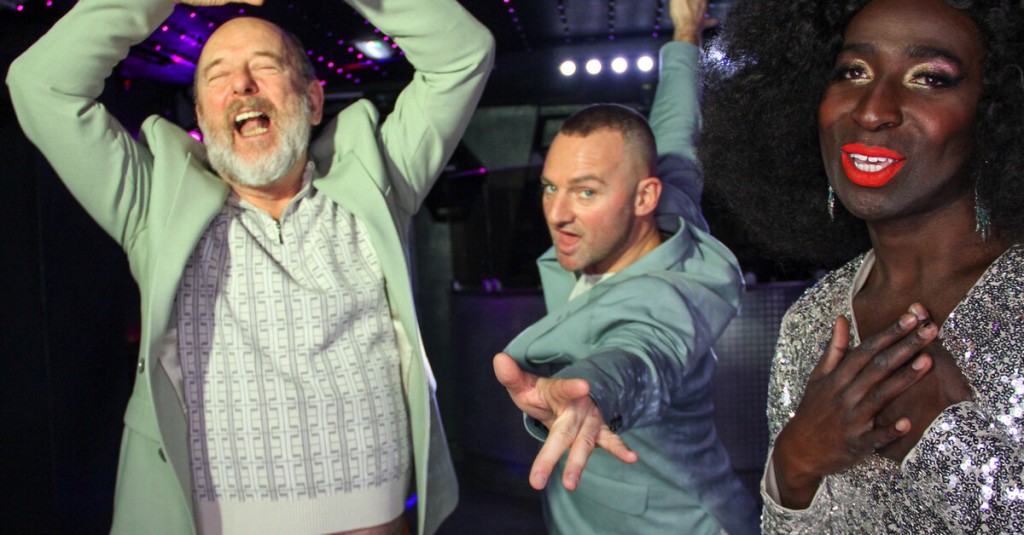
Royal Welsh College of Music and Drama, 18th November 2023
It is hard to find a succinct description of the evening that was A Queer Collision at Royal Welsh College of Music and Drama. Opening with cabaret performances from VIP (Very Important/Visually Impaired Person) Ebony Rose Dark and dance artist Rajan Das, leading into the main show with Willie Elliot and Stuart Waters, and closing with a sparkling turn by drag artist Venetia Blind, A Queer Collision was an act of celebration, commemoration and storytelling that spanned the personal, historical and political.
Ebony Rose Dark and Rajan Das provided two contrasting cabaret acts to kick off the evening in the foyer, with Ebony Rose Dark delivering classic diva numbers with an effortless sense of glamorous joy, and Rajan Das performing a seductive, self-reflective movement and spoken word act. Using the closing moments of his act to invite the audience into the auditorium, Das set the stage for the direct, pared back approach of the main show.
Immediately breaking the fourth wall to introduce himself, the BSL interpreter and the in-house counsellor, Willie Elliot holds the role of storied elder on the stage, telling stories that span his 65 years from cottaging at Buchanan bus station to watching Section 28 and the AIDs crisis hit his community, to attending his first same-sex civil partnership ceremony.
His is a wise and silly character, held in balance by Stuart Waters’ younger, sometimes more intense character.
The show employs a wide ranging arsenal of theatrical devices to tell its stories, with some proving more successful than others. The inclusion of audio description as an embedded feature of the script was a brilliant innovation and, while I can’t compare it to standard audio description as I have never had call to avail of it, it felt like an effective device.
Within the sparse, bare stage, the inclusion of movement enhanced the storytelling at several points throughout the show, a section about all the different ‘types’ of men, a mincing military parade laying bare the farce of describing allowing gay men to join the army as progress, a depiction of a dance show rife with agonising second-hand mortification, a harrowing assault, and an absorbing memory of early encounters at a disco. However, there were also moments in which movement sequences happening adjacent to a spoken story felt extraneous and distracting. In these moments, leaning into the simplicity of the stage would have held a stronger space for the stories being told.
Though at times the pacing was a little disjointed, with some episodes that would have benefited from being trimmed or placed at different points in the show, overall A Queer Collision was an absorbing work that presented its audience with both comforting resonances and opportunities to learn.
The final word in this review has to go to Venetia Blind, who closed out the evening with two incisive and hilarious numbers about inspiration porn and consent. The highlight of my evening, she brought vivid wit and cheeky humour to her musical commentary on common problems.
A heart-warming and heart-wrenching evening of entertainment, stories and histories, A Queer Collision is worth catching as it continues its UK tour.